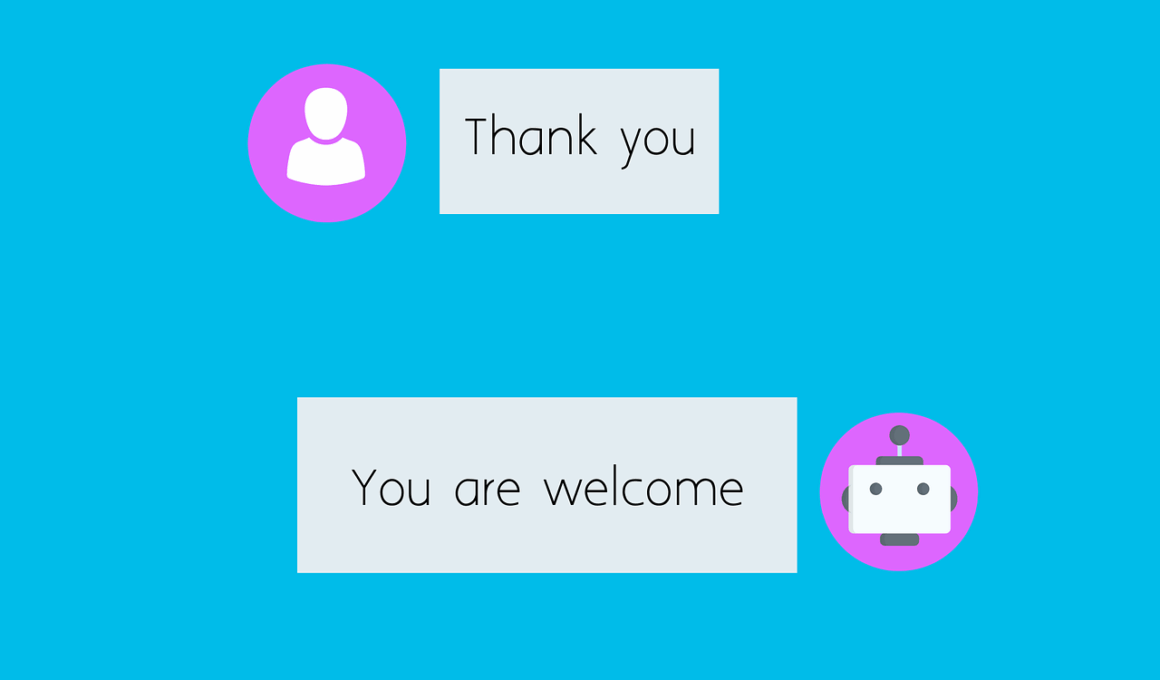The Importance of Prompt Responses in Social Media Customer Service
In today’s fast-paced digital environment, businesses are expected to maintain a strong presence on social media platforms. A critical aspect of this presence is providing excellent customer service that meets the needs of consumers immediately. When customers reach out with inquiries, complaints, or feedback, having prompt responses can significantly enhance their experience. Customers expect brands to be reactive on platforms like Twitter and Facebook, where information travels quickly and expectations for speed are higher than ever. Consequently, having a strategy that prioritizes promptness will result in better customer satisfaction. Moreover, this real-time engagement fosters brand loyalty since consumers appreciate companies that value their time and opinions. To keep pace with competitors, businesses need to utilize social media tools effectively and create efficient systems for addressing customer inquiries. Training your staff to manage social media interactions swiftly can be a game changer. Investing in social media monitoring solutions aids in ensuring that no comment or query goes unnoticed. Brands that respond promptly not only win customer loyalty but also enhance their public reputation in an increasingly digital world.
Establishing dedicated customer service teams for social media can set a business apart. These teams are skilled in managing customer communications and resolving issues efficiently. It involves knowing when to respond immediately and handling complex queries that may require more time and resources. With dedicated teams, businesses can streamline their response procedures and establish clear protocols for interaction. Ideally, training should involve techniques for addressing various types of customer interactions, from polite acknowledgments to crisis management strategies. Additionally, implementing social listening tools can provide insights into customer sentiment and behavior, allowing teams to tailor responses to specific audiences effectively. Consistency is another critical factor in social media responsiveness. A cohesive tone and approach help establish brand identity while also making customers feel recognized and valued. Companies that prioritize social media responses also see improved customer satisfaction ratings. Engaging customers in conversations and providing thoughtful, prompt replies signals that they are important to the brand, leading to heightened loyalty. Thus, having a dedicated social media customer service team can yield long-term benefits, fostering a community of engaged, loyal customers who advocate for the brand.
The Impact of Speed on Customer Satisfaction
The speed at which a brand responds to customer inquiries is directly correlated with overall customer satisfaction. Recent studies have illustrated that consumers have significantly higher satisfaction rates when brands reply within one hour of receiving inquiries. If responses are delayed beyond this timeframe, there is a likelihood of customer frustration and abandonment. Even a great resolution can fall short if the wait time is excessive, which can lead to negative reviews and lost business. Quick responses are essential, especially when addressing complaints or urgent inquiries. In this context, having a strategy to ensure response times align with customer expectations is vital. Utilizing chatbots for initial interactions can help guide customers while human agents focus on more complex issues. Furthermore, providing estimated reply times for pending inquiries can also elevate customer experiences. Transparency in communication reassures customers that their concerns are being prioritized. Social media should be viewed as a critical customer touchpoint where brands deal with immediate issues, inquiries, and feedback effectively. Ultimately, adopting these practices will not only boost customer satisfaction but also improve brand reputation overall.
Another key aspect to consider is how timestamped responses can be leveraged for greater impact. Social media platforms offer real-time engagement, allowing brands the unique opportunity to address concerns swiftly. However, simply responding quickly is not sufficient; brands must also ensure the quality of their responses aligns with customer expectations. Providing well-informed and considerate replies demonstrates that the business takes consumer feedback seriously. Automated replies can serve as interim messages; however, it’s essential to follow up with personalized responses. If automation is utilized, it should be designed to streamline processes without sacrificing the human touch that customers crave. Moreover, creating templates for frequently asked questions can accelerate response times without sacrificing individual attention. Balancing quick replies with thoughtful engagement creates a seamless interaction experience for customers. Furthermore, it helps in building trust over time, which can lead to referrals and repeat business. Establishing a foundation of prompt responsiveness will reinforce loyalty and trust among your clientele. In today’s competitive landscape, brands that neglect the importance of timely responses risk losing valuable customer relationships.
Measuring Response Times
To assess the effectiveness of your social media customer service, monitoring response times through analytics is crucial. Setting up key performance indicators can help businesses track how swiftly they respond to inquiries, allowing for continuous improvement. Businesses should analyze response times for specific platforms, as the pace of engagement can vary between channels. For instance, Twitter’s fast nature requires shorter wait times compared to platforms like Facebook, necessitating tailored strategies. Consistently reviewing these metrics can inform whether teams need additional resources or training to enhance performance. Additionally, collecting customer feedback regarding their interaction experience will provide deeper insights into the effectiveness of response times. Surveys can be employed to measure satisfaction levels and gather suggestions for improvement. Understanding customers’ perceptions can unveil areas that may need attention in existing processes. A commitment to continual measurement ensures businesses can adjust their practices proactively to meet consumer expectations. Investing in analytics tools will further support efforts in monitoring trends in response times and customer satisfaction. Ultimately, optimizing your social media response strategy can lead to more meaningful engagements and boost overall brand loyalty.
Engaging with customers post-resolution is as important as the initial response. After addressing a query or concern, following up allows brands to reaffirm their commitment to customer satisfaction. This step shows customers that the brand values their experience and is willing to ensure they are happy with the outcomes. Post-resolution engagement can involve asking for feedback, offering additional resources, or sharing relevant content that could enhance the customer’s experience. For instance, if a customer is seeking assistance with a product, a follow-up message offering tips or related articles illustrates genuine dedication to their satisfaction. Moreover, it allows businesses to proactively manage any unresolved issues, further solidifying the relationship with the customer. Adding personal touches to these follow-ups can enhance the overall impact, making customers feel seen and appreciated. Engaging beyond the initial resolution can ultimately result in higher rates of retention and increased likelihood of returning customers. In essence, providing valuable engagement after issues are resolved is another integral pillar in the customer relationship-building process on social media platforms.
Conclusion
In conclusion, promptness in social media customer service is not merely a luxury but a necessity in today’s highly competitive digital arena. Businesses that effectively mobilize their resources to provide timely responses reap numerous benefits, including enhanced customer satisfaction, loyalty, and improved brand reputation. With consumers increasingly expecting immediate feedback, companies must implement structured methodologies to meet these expectations consistently. By training dedicated teams, utilizing analytical tools, and establishing clear response protocols, brands can significantly improve their responsiveness. Fulfilling customers’ needs promptly not only reassures them but also encourages long-term relationships that can withstand market fluctuations. Prioritizing responsiveness isn’t just about addressing inquiries—it’s about crafting experiences that resonate, fostering trust, and building a community around your brand. Ultimately, as the landscape of customer service continues to evolve, brands that adapt swiftly to these dynamics will stand out as leaders in customer care. Make a conscious commitment today to assess and enhance your social media customer service strategies for the benefit of your brand and customers alike.
Image Link: 


